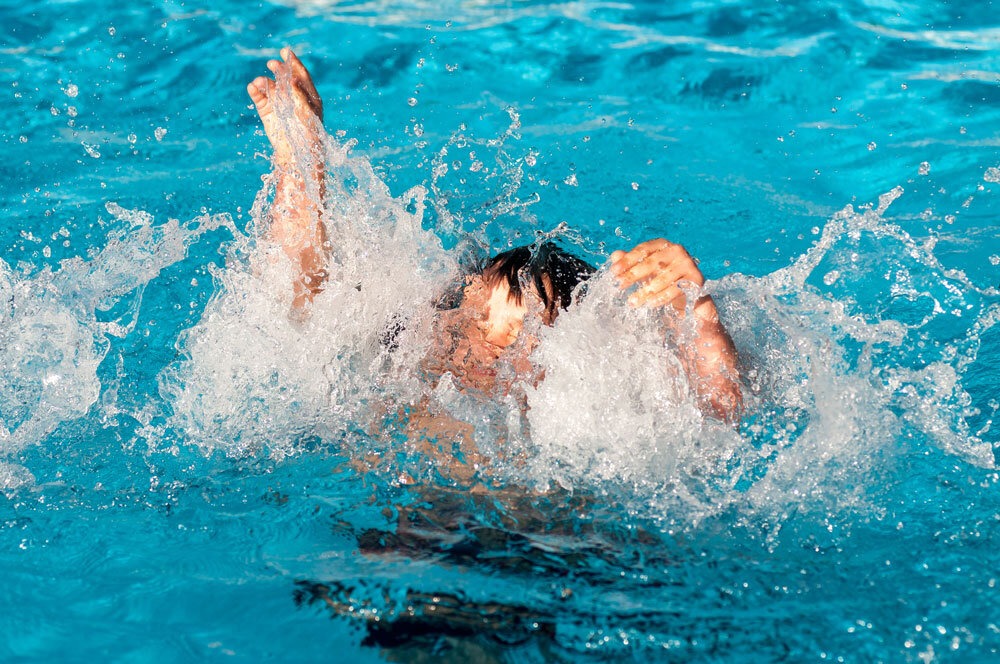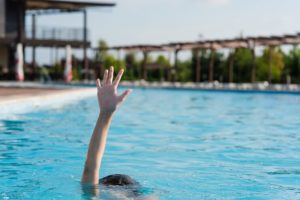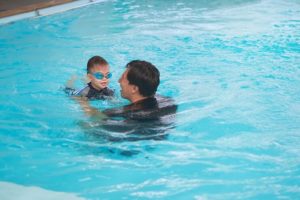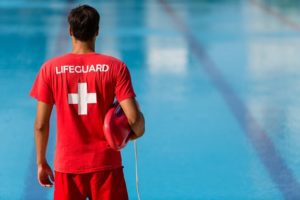Swimming Pool Accidents: Let Us Help You

What Are Swimming Pool Accidents?
When warm weather arrives, many people enjoy going for a swim at a neighborhood, hotel, or casino pool. However, improper recreational safety practices can result in severe harm to swimmers. This is especially true for children, as one in five people who die from drowning are children under the age of fourteen. Additionally, swimming injuries often result in hospitalization and can cause severe and long-lasting injuries such as brain damage. Severe brain damage can cause memory loss, learning disabilities, and permanent loss of basic motor skills – such as writing, speaking or the ability to drive a car. Therefore, it is important for injured swimmers to get immediate medical attention and retain counsel. We want to ensure you recover and hold swimming pool owners and operators accountable for severe accidents, injuries, and, worst of all, death by drowning.
Types of Swimming Pool Injuries
Swimming pool injuries include more than drownings and near-drownings. Other injuries include:Diving Board Injuries
Diving Board Injuries
- Diving from improperly secured diving boards, or those placed in too shallow water can result in serious brain injuries and/or paralysis
Swimming Pool Slide Injuries
- Slides may drop off in shallow parts of the pool or may be improperly secured or maintained
Slip and Fall Accidents Near a Pool
- Slip and fall accidents can occur when surfaces, particularly surfaces that are especially slippery, near the pool become wet
- Uneven surfaces and poor lighting may also contribute to slip and fall accidents in and around the pool area.
Pool Toy Entrapment
- Pool floats can flip over and/or become tangled, trapping swimmers underwater
Suction Entrapment
- Suction forces may cause hair entrapment and entanglement, resulting in brain and bodily injuries or drowning
Electrocution
- Malfunctioning electrical equipment, loose wires, or poorly placed electrical equipment can be especially dangerous when swimmers are in the pool
Pool Drain Injuries
- Improperly covered drains can cause severe injuries or death, especially with small children
Chemical Irritations and Injuries
- An improper mixture of cleaning agents can cause chemical irritations or infections
Common Causes of Swimming Injuries
Common causes of swimming injuries include:
Failure to cover or gate pools/hot tubs
- Uncovered or improperly covered or secured pools and hot tubs can create an “attractive nuisance” which is especially dangerous with young children
Poor lighting
- Insufficient lighting can result in slip and falls and other serious injuries in and around pools
Inadequate safety equipment
- Broken,malfunctioning, or the complete lack of safety equipment such as life preservers can prevent rescue and result in drownings and near-drownings
Slippery surfaces
- Wet surfaces around pools can cause slip and falls and other serious injuries
Loose tiles
- Loose tiles in and around pools can result in significant wounds to swimmers
Cracked pavement
- Cracked pavement can cause slip and falls and severe wounds to swimmers
Open or broken gates
- Improperly secured gates are especially dangerous for children because they can create an “attractive nuisance” and result in drowning and near-drownings
Sharp edges located in the pool
- Sharp edges in the pool can cause significant injuries to swimmers such as lacerations, deep cuts, and even brain injuries
Dirty or murky water
- Dirty or murky water reduces visibility and can prevent rescue from drowning
Overcrowding
- Overcrowding can cause trampling injuries and reduces supervision capabilities of lifeguards/adults
Lack of adequate supervision
- Inadequate supervision can result in severe injuries, especially when young children are swimming
Untrainted/distracted lifeguards
- A lifeguard who is not properly trained or is distracted (texting, etc.) can cause injuries to swimmers in casino,resort, or hotel pools
What Claim Could I Bring for my Swimming Pool Injury?
In Nevada, if you are injured on another person’s property, you may be able to bring a negligence lawsuit under the theory of “premise liability.” In such a case, the injured party (the plaintiff) would have to prove five elements:
- Ownership or control of the premise: The defendant (pool owner or operator) is the owner of the premises or controls the premises where the accident occurred. For instance, a homeowner or casino owner may be liable for injuries that occur on their property.
- The swimmer was allowed to be on the property: The plaintiff was on the premises with the defendant’s permission.
- A dangerous condition on the premises: A dangerous condition/hazard existed on the defendant’s premises.
- Defendant’s knowledge: The defendant caused, knew of, or should have known of the alleged dangerous condition.
- Causation: The dangerous condition/hazard caused the plaintiff’s injuries and/or other damages.
In order to prevail on a negligence claim under premise liability, the plaintiff must prove these five elements by a “preponderance of the evidence.” This means it is more likely than not that the defendant’s breach of duty caused the plaintiff’s injuries.
What If The Injury Happened at Someone’s Home?
When a homeowner invites guests to swim, there is an expectation that the hosts have made their property, particularly the swimming area, reasonably safe. The pool owner has an additional duty to warn guests of any hazards if it is likely that guests will come into contact with those hazards. For instance, if there is a ladder, railing, or slide that is not properly functioning, the pool owner has an obligation to notify their guests. Additional safety protocols must be taken to ensure the safety of children. When children are using the pool, the pool owner must provide adequate supervision and a proper barrier. Failure to properly supervise children could result in the pool owner being held liable for injuries sustained by children. Additionally, proper barriers/fences must be installed because improperly secured pools are considered “attractive nuisances.” An attractive nuisance is a condition or object on property that is likely to attract children. This means that the pool owner could be held liable for accidents, even if the child was not given permission to enter the pool. For example, if children often use the owner’s unfenced pool without permission, the owner should acknowledge this risk and install a fence to prevent injuries.
Injured swimmers may also be able to hold manufacturers liable under Nevada products liability laws if the accident was caused by broken or non-functioning pool equipment, such as a life preserver.
For a free legal consultation, call (725) 900-9000
When an injured swimmer sues an insured homeowner, the homeowner’s insurance policy will handle the litigation. If the injured party wins, the insurance company will pay for the plaintiff’s damages up to the limit of the homeowner’s coverage. If the plaintiff’s damages exceed the policy limit, the plaintiff can sue the homeowner individually for the difference.
What If The Injury Happened at a Hotel Pool or Casino Pool?
Swimmers in a casino, resort, or hotel pool are considered “invitees,” which means they are owed the highest standard of care from property owners. Because invitees are typically visiting the property for the owner’s benefit (they are paying a fee to use the pool, etc.), the property owner is expected to:
- Actively find potential hazards
- Conduct regular inspections
- Operate the pool in accordance to code
- Remedy hazards immediately
- Warn guests of hazards while they are being remedied (ex: wet floor signs)
- Hire a sufficient amount of security and pool maintenance personnel (lifeguards, etc.)
Even if a casino or resort had lifeguards present at the time of the accident, the owner will not be absolved of liability if lifeguards were distracted or unreasonably delayed in providing rescue services.
Click to contact our personal injury lawyers today
Casino and resort pools may also have features that are designed to create certain experiences, such as wave machines. However, these machines can malfunction and lead to drowning incidents. In these cases, the plaintiff may be able to bring a products liability suit against the parts or equipment manufacturer.
Additionally, when swimming injuries occur at a casino, hotel, or resort, multiple parties can be held liable. These parties can include the hotel, the swimming pool operator, the lifeguard company, and numerous insurance companies.
Complete a Free Case Evaluation form now
Fortunately, casino, hotel, and resort pools usually have many security cameras that can capture swimming accidents. However, this footage is usually not kept for a long period of time. Therefore, injured swimmers should contact a Personal injury attorney immediately to ensure that this footage is preserved for a lawsuit.
What are a Lifeguard’s Responsibilities?
According to the Southern Nevada Health District Aquatic Facility Regulations and the American National Standards for Public Swimming Pools, lifeguards must adhere to the following regulations:
- Lifeguards must monitor the bathers within their assigned zone and be able to recognize and respond to incidents
- Each lifeguard conducting bather surveillance with the responsibility of in-water rescue in less than three feet of water shall have a rescue tube immediately available for use
- Lifeguard stations shall have an unobstructed view of the entire bottom of the aquatic venue
- The lifeguard must be able to reach the furthest extent of the assigned zone of bather surveillance within 20 seconds
- The lifeguard must be able to surveil his zone of responsibility and recognize a problem within 10 seconds, and he must be able to evaluate his station and intervene within 20 seconds
- No lifeguard shall conduct bather surveillance activities for more than 60 continuous minutes
- Lifeguards assigned responsibilities for bather surveillance shall not be assigned other tasks that intrude on bather surveillance
- Lifeguards assigned to bather surveillance cannot be engaged in any other activity that might distract them or intrude on their ability to recognize and respond to incidents
What if I Was Partially At Fault for the Accident?
In Nevada, courts follow the modified comparative negligence standard. This means that a plaintiff can recover damages as long as the defendant was at least 50% responsible. If you are less than 50% at fault, your damages will be reduced by the percentage for which you were at fault. For instance, if the damage award is $100,000, but the plaintiff was found to be 30% at fault, the damage award would be reduced to $70,000. Thus, you can still recover for your injury even if you are found to be partially at fault.
What Compensation Could You Receive?
Damages you could receive as a result of a swimming injury include:
Medical Bills
- A plaintiff may receive compensation for medical expenses for all immediate and future medical expenses resulting from the accident. These expenses may include hospital bills and ambulance fees as well as future physical therapy and occupational rehabilitation expenses.
Lost Wages
- A plaintiff can recover lost income for time missed at work due to the injury. If the plaintiff missed work for an extended period of time, he or she can recover compensation for the income that would have been earned for that time period.
Lost Earning Capacity
- If the plaintiff suffers a permanent disability that prevents him or her from working in the future or returning to a previous job, he or she can recover compensation for lost future earnings.
Pain and Suffering
- Nevada law allows plaintiffs to recover for their physical pain and mental distress. There are no damage caps or limits for the amount the plaintiff can receive.
Punitive Damages
If the defendant’s failure to exercise reasonable care is especially egregious, the court can order the defendant to pay punitive damages. Punitive damages can greatly exceed damages issued for medical expenses, lost wages, and lost earning capacity.
Contact or call us at 725-900-9000 to get the settlement and justice you deserve. Our detail-oriented firm can fight to get you the best compensation possible.
No obligation consultations are always free.
Let Us Help You! Call Now: (725) 900-9000


